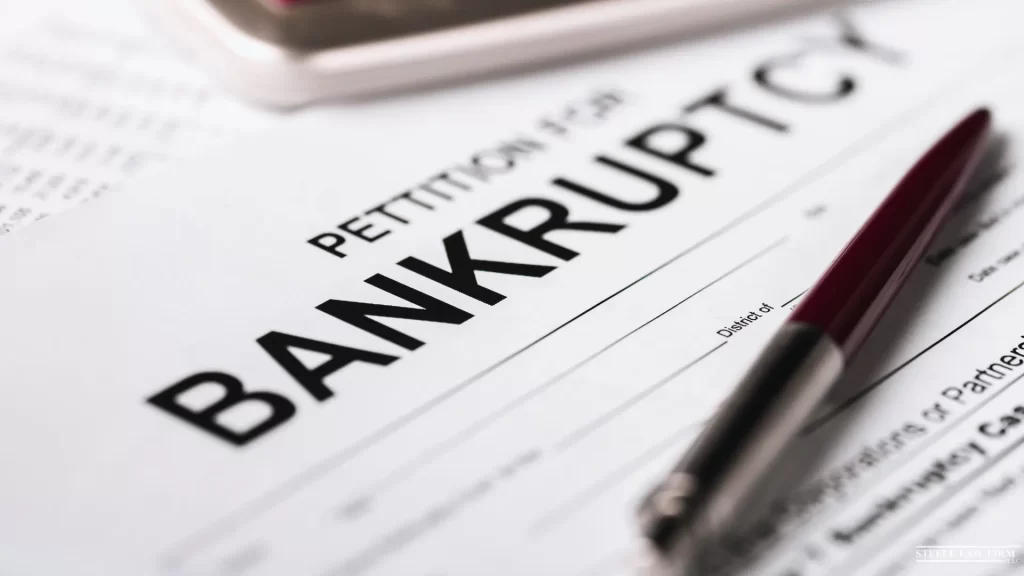Dealing with unpaid credit card debt can be overwhelming, and many Texans don’t know what kind of legal and financial consequences they may face. Understanding what happens if you don’t pay credit card debt in Texas is essential when protecting your credit, assets, and future financial stability. Whether you’re struggling with mounting balances or navigating complex debt law cases, having the right knowledge is the first step toward resolving your financial challenges.

Steele Law Firm, PLLC, is committed to prioritizing your interests in every legal matter we handle. By carefully managing our client roster, we ensure each case receives dedicated focus, thorough strategy, and personalized attention you deserve. We combine proven results with empathetic, client-centered service when you need it most.
When a credit card payment is missed, the first consequence is often a late fee. Credit card companies typically report late payments to the major credit bureaus, which then impacts your credit score. This negative mark could remain on your credit report for up to seven years, which can affect your ability to secure loans, rent an apartment, or even get certain jobs.
Once a credit card debt is delinquent, creditors start contacting you through collection calls and written notices. Texas debt law allows creditors to pursue unpaid debts through a variety of methods, but they must stick to fair practices.
Texas law outlines what collectors can and can’t do when they try to recover funds. While repeated calls and letters can be stressful, consumers should know that harassment or threats are illegal under both Texas and federal debt laws.
Credit card debt is generally considered a type of written contract in Texas, which means a creditor has four years from the date of your last payment or acknowledgment of the debt to file a claim against you. Once this period expires, the creditor can’t legally file a claim to collect the debt, although they might still try to collect through calls or letters.
With 90% of Americans owing a total of $17.5 trillion as of 2023, and every household owing $4000 in credit card debt alone, it’s no wonder creditors can get aggressive.
If a creditor decides to pursue legal action, you could face a civil claim in a Texas court. In debt law cases, if the court rules in favor of the creditor, a judgment could be issued against you. This judgment allows creditors to take further actions to collect the debt, like garnishing wages or putting liens on property.
Texas has specific protections for wage garnishment. Generally, Texas doesn’t allow wage garnishment for credit card debt, which means creditors can’t take money directly from your paycheck.
Property liens are a possibility. If a creditor obtains a judgment, they could place a lien on your property, which can complicate selling or refinancing your home.
For those struggling with unpaid credit card debt, negotiating with creditors could be a viable strategy. Debt settlement allows you to potentially reduce the total amount owed or reduce your monthly payment amount, but it can still impact your credit score.
Bankruptcy is another tool available for Texans facing insurmountable debt. Filing for bankruptcy can stop all collection efforts and provide relief from unsecured debts like credit cards. Understanding debt law cases related to bankruptcy requires the guidance of an experienced Texas debt attorney, as the process involves strict legal requirements and long-term financial implications.
Bankruptcy cases in Fort Worth are handled by the United States Bankruptcy Court for the Northern District of Texas, Fort Worth Division. The court is located in the Eldon B. Mahon U.S. Courthouse at 501 W. 10th St.
In complicated debt law cases, or if you’re facing a civil claim, it’s important to hire a debt lawyer. An experienced Texas debt attorney from Steele Law Firm, PLLC, can evaluate your situation, explain your rights under debt laws, and represent you in negotiations or in court proceedings. Hiring a debt lawyer early on can prevent further complications, reduce the risk of unfavorable judgments, and provide peace of mind as you navigate the legal landscape surrounding unpaid credit card debt in Texas.
A: Yes, in some cases, credit card debt that has gone unpaid could indirectly affect your professional licenses. If a creditor obtains a judgment and pursues aggressive collection measures, or if debt is reported to credit agencies, state licensing boards might consider you financially irresponsible and take that into account when it comes time to renew your license, or when you’re going through disciplinary evaluations.
A: Yes, debt that has gone unpaid can affect your rental applications in Texas, as many landlords perform credit checks during the rental application process. Unpaid credit card debt can lower your credit score and show up on reports. Even if there’s no current claim or judgment, a history of delinquent debts could imply that you might not be able to pay your rent.
A: Generally, family members can’t be held liable for someone else’s credit card debt unless they’re co-signers on the account. Texas debt laws only recognize those individuals who signed the credit agreement as responsible for any repayments. That means co-signers are equally responsible and can face collection actions if the primary account holder defaults.
A: Yes, unpaid credit card debt could be factored into child custody disputes in Texas. Family courts consider overall financial responsibility when determining child custody or support arrangements. While unpaid credit card debt alone doesn’t automatically determine custody, chronic financial mismanagement could influence a court’s perception of a parent’s ability to provide a stable environment.
Steele Law Firm, PLLC, is dedicated to helping Texas residents navigate complex debt issues by offering strategic advice, negotiation support, and legal representation to protect your assets and rights. Contact us today to schedule a consultation.




